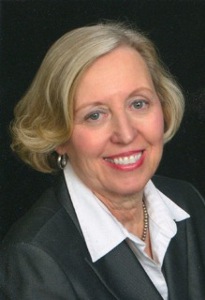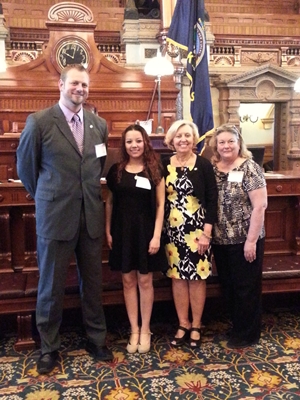
It is an honor to represent District 6 in the Kansas Senate.
If I can be of service to you or anyone you know, please call my office at 785-296-7375, or email me at pat.pettey@senate.ks.gov.
In this issue:
• Legislature moving at a snail’s pace
• Proposals to increase taxes
• School finance update
• Civil service protections eliminated
• Veto override
• Judicial budget
• Fantasy football
• Foster care increases
• Working after retirement
• Changes to marijuana possession penalties
• House Tax sends out bill
• Impacts of policies on families
Legislature moving at a snail’s pace
Last week the Senate worked and approved more than a dozen bills, and committees continued to meet. Unfortunately, I do not have much good news to report.
Progress is sluggish when it comes to the biggest issues left to be resolved – taxes and the budget. House and Senate tax committees met almost daily to hear proposals such as increasing the fuel tax on gasoline by 5 cents, raising the sales tax, and eliminating the homestead exemption. In short, all proposals result in a greater burden for hardworking families and Kansans living on low and fixed incomes. However, none of the proposals have “stuck.”
Proposals to increase taxes
The Senate tax committee spent the week at an impasse for how to increase revenue to fill the $800 million budget shortfall the state currently faces. On Thursday afternoon, a week ago, they finally passed a bill out of committee that would likely result in $30 million, at best, in revenue. The committee gutted Senate Bill 234, removing nearly all of the governor’s recommendations, except tax amnesty. This program allows certain taxpayers to pay a designated amount in exchange for forgiveness for their remaining tax liability.
Proposals such as increasing sales tax – commonly being referred to as consumption tax – and raising property tax are still on the table and are likely to be seen as floor amendments during the full Senate debate. I do not support any of these unfair, unsustainable tax increases.
The House Tax Committee passed out a bill without recommendation that has many parts to address the revenue hole. The only piece that is helpful to hardworking Kansans is the reduction in food sales tax to 5.9 percent. Next step – floor debate.
School finance debate
• Emergency funds — Superintendents from eight school districts appeared before the State Finance Council this week requesting emergency funds to cover expenses for the current school year. The districts lost money after the Kansas Legislature passed the law that completely changes school funding. The finance council consists of leaders from both chambers plus the governor.
In total, the schools requested $1.2 million of the $4 million from the extraordinary needs fund. After giving superintendents an opportunity to defend their need for the additional funds, the council approved funding for five of the eight districts. Of those five schools, only three received the amount they applied for, and the other two received significantly less than requested. A total of $478K was approved. This new process pits schools against each other, picks winners and losers, and creates conflict of interest situations for legislators. It’s just one more element of the quickly passed, bad policy.
• School finance case — The three-judge panel heard oral arguments Thursday and Friday of last week related to the block grant law. Superintendent Cindy Lane, from the Kansas City, Kan., school district (USD 500) explained how the block grant system is ineffective and cut funding to their district. Additionally, an official from the Kansas Department of Education noted that nearly every district in the state received reductions to their budgets. The judges also heard from the superintendent of the Hutchinson school district and Kansas Chamber President Mike O’Neal. It is unknown when the judges will issue their ruling.
Civil service system eliminated
A bill stripping public employees of their civil service protections passed the Senate this week and now heads to the governor for final approval. House Bill 2391 removes an employee’s classified status, changing them all to an “at-will” status. Employees can now be fired without cause.
This replaces the state’s current merit based system with a system that tolerates political patronage. These changes jeopardize millions of federal dollars that are provided for a number of positions serving Kansans every day. Kansans deserve the best possible employees, regardless of their political affiliation or beliefs.
Uber veto override
While legislators were on break in April, Gov. Brownback vetoed legislation that regulates ride-sharing services by requiring drivers to complete a KBI background check and to have comprehensive and collision insurance on their vehicles. The Senate voted 34-5 and the House voted 96-25 to override the veto.
In a dramatic response, ride-sharing service Uber immediately shut down all operations in the state. The company had established services in Kansas City, but was working on expanding to other cities. The veto override in no way prevents the company from operating, as they have stated, and legislators have made it clear that they are willing to continue negotiations with Uber; there is still time during the wrap-up session to come to a compromise. This $40 billion company should provide for consumer safety.
I voted in favor of the legislation because it provides added protections for drivers and consumers that the ride-service companies don’t already provide.
Judicial budget
Legislation that contains the stand-alone budget for the judiciary is in conference committee after receiving initial approval from the Senate on a vote of 32-8. House Bill 2005 continues the trend from the 2014 session of tying judicial funding to policy reforms.
Last session, the Kansas Legislature passed, and the governor signed, changes that took away the power of the high court’s to control budgets and pick chief administrative district judges. This year’s judicial budget includes policy that would remove judiciary funding entirely if the courts rule that this piece of legislation or last year’s law is invalid or unconstitutional. I voted against this bill as it is a blatant overreach of the legislative branch.
Fantasy football
Fantasy Football fans in Kansas may soon have something to cheer about. The legislature passed Senate Substitute for House Bill 2155, which legalizes fantasy football leagues. Under current law, fantasy football leagues that disburse money as awards are considered lotteries and are illegal. The legislation that passed changes the designation from a lottery to a game of skill.
The same bill also removes restrictions related to bingo, allowing premises hosting bingo to offer it more often.
I voted in favor of the legislation. It now goes to the governor for approval.
Foster care increases likely
Reports from the Department of Children and Families indicate that a record-breaking 6,337 children are in foster care as of March 2015. This number is likely to increase as more than 700 children are dropped from Temporary Assistance for Needy Families (TANF) after the new law signed earlier in April changes low-income families’ lifetime eligibility from 48 months to 36 months, effective July 1.
An additional 80 children will be dropped after July. Without the assistance, many parents may not have the ability to adequately care for their children, resulting in complaints and children taken away. In addition to an increase in foster children, food pantries and homeless shelters are likely to see a spike in demand when many are already struggling to meet their community’s needs.
Working after retirement
A bill passed unanimously in the Senate that allows public employee retirees to return to work based on current law until June 30, 2016. After that point, all retirees who have returned to work will be allowed to receive up to $25,000 in compensation annually from a contributing KPERS employer, regardless of whether the retiree is returning to work for the same or different employer. Once the cap is met, the retiree must either terminate employment or forgo monthly KPERS benefits until the end of the calendar year. Under current law, the cap is $20,000.
The caps do not apply to state hospital nurses, local elected officials, legislative staff, substitute teachers, or law enforcement officers employed by the Law Enforcement Training Center. The legislation has a sunset of July 1, 2021, to ensure the Kansas Legislature evaluates the needs of retirees and employers. Senate Substitute for House Bill 2095 now goes to the House for consideration.
Changes to marijuana possession penalties
This week the House approved HB 2049, in response to projections from the Kansas Sentencing Commission that state prison populations will soon exceed current bed capacity. The legislation would lessen the current penalties of marijuana possession for repeat offenders, lowering the first violation to a misdemeanor. A third, and subsequent , violation would still result in a felony offense. If signed into law, the state may save over $1.2 million over the next year alone.
House tax sends out bill
On Monday, the House Tax Committee sent to the full House a bill that will eliminate the zero-income tax status of thousands of LLCs, small corporations and owner-operated businesses. In total, the 333,000+ businesses that pay no income taxes share a tax savings of about $205 million a year. The bill, which would raise $133 million toward a $406 million revenue shortfall for the coming fiscal year, is the first substantial effort to balance the budget, and it stabs one of the tax cuts that Gov. Brownback has touted for the past three years- that small business exemption that he says spurs the Kansas economy.
Impact of policies on families
It is becoming more evident that the governor’s policies on food stamps (SNAP) and cash assistance (TANF) are having a negative impact on Kansas families and kids. Over the last five years the number of families enrolled in cash assistance has dropped by nearly 60 percent, from 14,200 in 2010 to 6,200. The governor says the drop was due to the parents finding jobs, but the truth is that the state just made it more difficult to get help. And with the passage of HB2258, those policies were made even more stringent.
In fact, under HB2258, 350 more families will lose benefits on July 1. And every month after that, another 40 adults and 80 children will lose benefits.
While the Department of Children and Families (DCF) says there is no direct connection, Kansas is setting records for the number of children in foster care. The state is actively recruiting foster parents, anticipating more children will wind up in foster care as families cannot afford food or housing. They are also working on a communications plan to notify food pantries and homeless shelters that they will likely get more business soon.
DCF reported that a year ago they had a record number of children in foster care (6,159 children). Since then they have broken that record four times and in March 2015 we had 6,337 children in out-of-home placements. Our foster care system was never meant to handle this many children and is already overwhelmed. But with families under stress, we can expect even more children to go into the system.
I had the pleasure of attending the KCK School Board meeting on Tuesday, May 12, to witness the number of outstanding seniors receiving a variety of scholarships. It is so wonderful to see the promises that lie ahead for these students.
I am hosting a roundtable meeting with graduating seniors at the South Branch Library from 1 to 2:30 p.m. Wednesday, May 20. All seniors are invited to attend.

